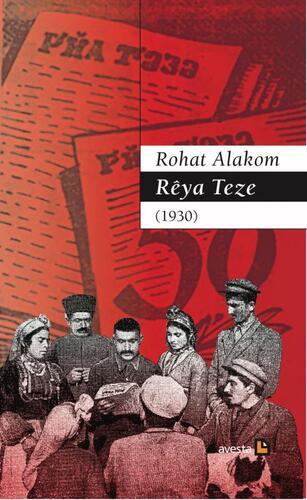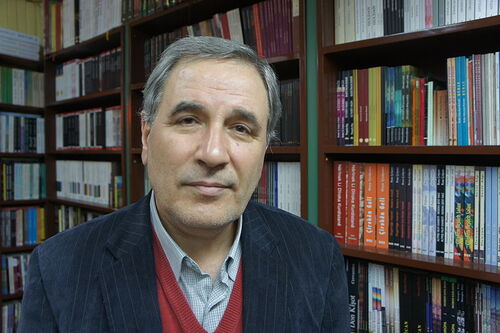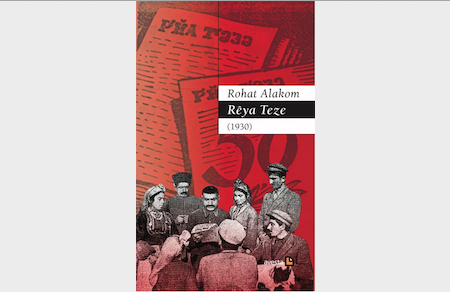This work like the other works of Alakom is a research project.
Alakom talks about his work as follows:
"New Way" (Reya Taza) is considered to be the first journal in the Kurdish language in the history of Kurdish journalism. It was published in the Latin alphabet. It is the first time that a Kurdish journal is being published professionally continuously for half a century by a State. This journal has been published in more than five thousand copies. This newspaper (1930) and Rawan radio program (1955) became two towers of Kurdish intellectualism and hope for every Kurd to be proud of their identity. Kurdish culture, as a culture that is threatened in many ways, has found little opportunity for protection in this journal. This newspaper which began to be published on March 25, 1930, in Armenia's Capital city, is considered to be the oldest Kurdish publication. The 90-year history of Regay Taza has come across various circumstances and time periods. It has been published in various forms of alphabetical writings such as Latin, Cyrillic, and Latin again. It has undergone many changes including the content, writers, and form. Although it is not the same as before, however, it was published in 2020 and became very popular. Rohat Alakom publishes the whole archive of Reya Taza in his book. First, he begins by talking about the history of this journal, then he describes the content and also the reason why this journal was closed down after a century. At the end of the book, the author has included many topics being published in the journal.

Who is Rohat Alakom?
He was born in 1966 in Qarasi Qaqzman in Qabakom. He completed his primary and high school education in Qaqzman. He received his university education from 1974 to 1978 in Ankara University. He went abroad after his education. He has always been cautious about the richness of multicultural life.
Since 1983, he has been living in Sweden. He has published several books about culture and history in Kurdish, Turkish, and Swedish. His books have been translated into many other languages, too.

These are the list of some of his books:
Kurdish motifs in the Swedish sources (Vajin_ 1991)
The superiority of women in Kurdish culture (Nudam_ 1994)
A new power in Kurdistan, Kurdish women (Apec_ 1995)
The Kurdish Aristoteles: Thorn (Apec_ 2003) Thorn: the border aristocrats, Avesta_ 2009
The Swedish Kurds (Serkland_ 2006)
The History’s Light (Aran_ 2008)
Farewell, Stockholm! Salahaddin Rastgaldi (Apec_ 2016)
Kurdistan History in Swedish Publications (Apec_ 2016)
Kurdish Women in the Swedish sources (Apec_ 2016)
Kürdoloji Biliminin 200 Yıllık Geçmişi (Komkar, 1987)
Çağdaş Türk Edebiyatında Kürtler (Vejîn-1989, Fırat-1991, Avesta-2010)
Unutulmuşluğun Bir Öyküsü: Said-î Kürdi (Fırat-1991)
Ziya Gökalp’in Büyük Çilesi: Kürtler (Fırat-1992)
Yaşar Kemal’in Yapıtlarında Kürt Gerçeği (Fırat-1992)
Bir Kürt Diplomatının Fırtınalı Yılları: Şerif Paşa (Apec-1995, Avesta-1998)
Eski İstanbul Kürtleri (Avesta-1998)
Hoybun Örgütü ve Ağrı Ayaklanması (Avesta-1998, Avesta-2011)
Svensk-kurdiska kontakter under tusen år (Apec-2000)
Orta Anadolu Kürtleri (Apec-2003, Evrensel 2004, Evrensel-2007)
Kurderna- Fyrtio år i Sverige (Serkland-2007)
Dünyanın En Yaşlı Adamı-Zaro Ağa (Avesta-2009)
Kars Kürtleri (Avesta-2009)
Kağızman-Kars’ın Tadı Tuzu (Kağızman Belediyesi-2012)









